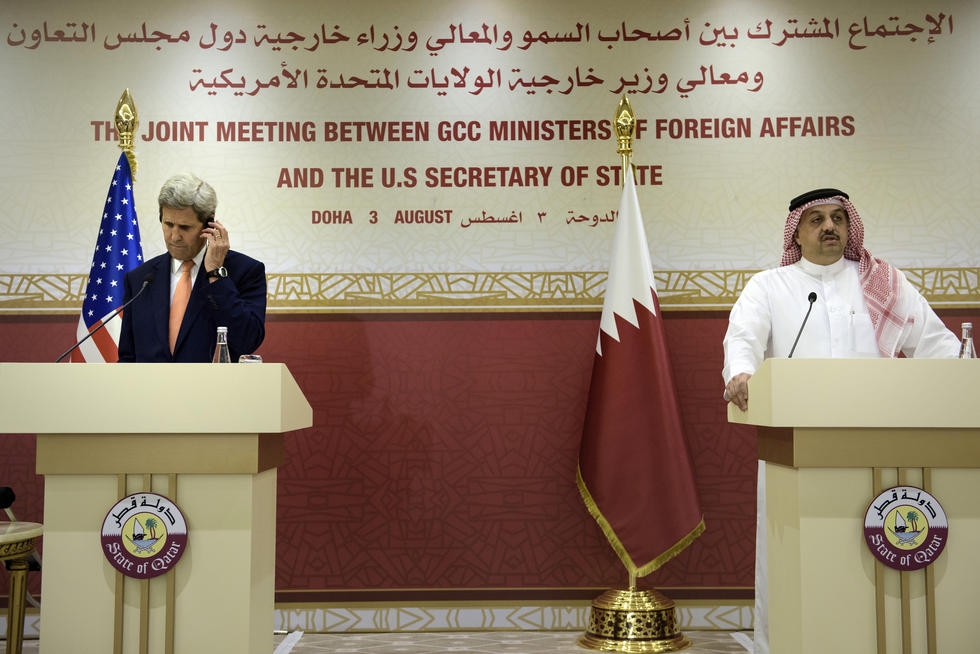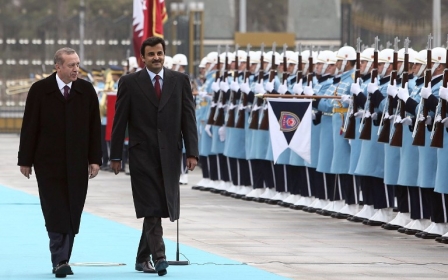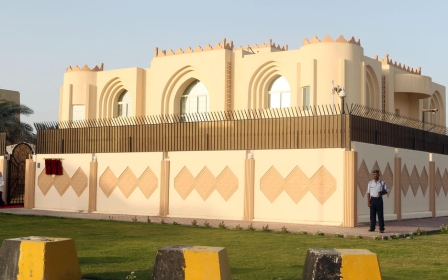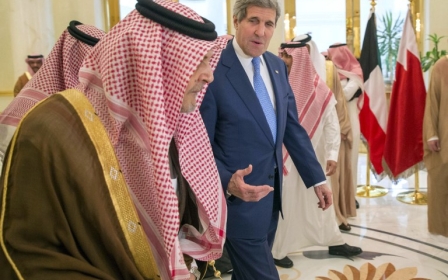US imposes sanctions on 2 Qatari nationals for 'terrorism financing'

The US Treasury on Wednesday added two Qatari nationals to its list of sanctioned financiers of terror.
Sad bin Sad Muhammad Shariyan al-Kabi and Abd al-Latif Bin Abdallah Salih Muhammad al-Kawari were primarily accused of sending funds to the al-Nusra Front in Syria and al-Qaeda in Pakistan and Afghanistan, respectively.
Kabi was also reportedly involved in the Madad Ahl al-Sham social network which set out to raise funds for Nusra, before being shut down by Qatar in 2015.
“These are important terrorist financiers and we do think this action is going to have a significant[ly] disruptive effect, and significantly impact the ability of groups like al-Qaeda and al-Nusra to raise funds in the Gulf region,” a senior US administration official said.
The official, however, added, that Qatar had not arrested the two men although he said that the “cooperation that we have received from the Qataris on this matter is a testament that our relationship is improving and growing”.
But the official also noted that “there continues to be concerns about terrorist financing going on in Qatar”.
Though Qatar is part of the US-led coalition carrying out strikes on the Islamic State (IS) in Iraq and Syria, its relationship with al-Nusra is more complicated.
Qatar, along with Turkey and Saudi Arabia, has been involved in coordinating and funding opposition forces in Syria fighting against the government of Bashar al-Assad.
The takeover of Idlib province in northern Syria by the Jaish al-Fatah coalition of rebels in the past several months has often been attributed to renewed cooperation between Qatar, Turkey and Saudi Arabia.
Nusra, along with Jund al-Aqsa and another al-Qaeda inspired group Ahrar al-Sham are all part of that coalition.
“The fact that this fundraising network continued operating for over half a year after the Washington Post’s initial warning regarding the group and its possible al-Qaeda ties suggests that Qatari regulators were asleep at the wheel,” David A. Weinberg, Senior Fellow at the Foundation for Defense of Democracies in the US, told Middle East Eye.
“And in all the time that’s elapsed since the network was ultimately shut down, there’s been no indication that either of these individuals has been charged in Qatar with a crime, same as has been the case with the legal impunity reportedly enjoyed by Abdulrahman al-Nuaymi and Khalifa al-Subaiy, both of whom are under sanctions by the UN.”
Nuaymi and Subaiy are both accused of being prolific al-Qaeda financiers and are believed to have had links to the 9/11 bombings.
“This just seems like a repeat of the same negligent policies that allowed Doha to become a permissive jurisdiction for terror finance in the first place, responding sporadically to outside pressure without then taking public steps to deter similar future acts through the court system,” said Weinberg.
Qatar has repeatedly denied funding al-Qaeda inspired groups. In an August 2014 opinion piece for the Huffington Post, Qatar's foreign minister wrote that “Qatar does not endorse any extremist group in any way”.
"Qatar does not endorse any extremist group in any way. We are shocked by their opinions, their violent methods and ambitions,” wrote Khalid bin Mohammed al-Attiyah. “The vision for the region of extremist groups is not ours and we will never support them in any way whatsoever.”
New MEE newsletter: Jerusalem Dispatch
Sign up to get the latest insights and analysis on Israel-Palestine, alongside Turkey Unpacked and other MEE newsletters
Middle East Eye delivers independent and unrivalled coverage and analysis of the Middle East, North Africa and beyond. To learn more about republishing this content and the associated fees, please fill out this form. More about MEE can be found here.




